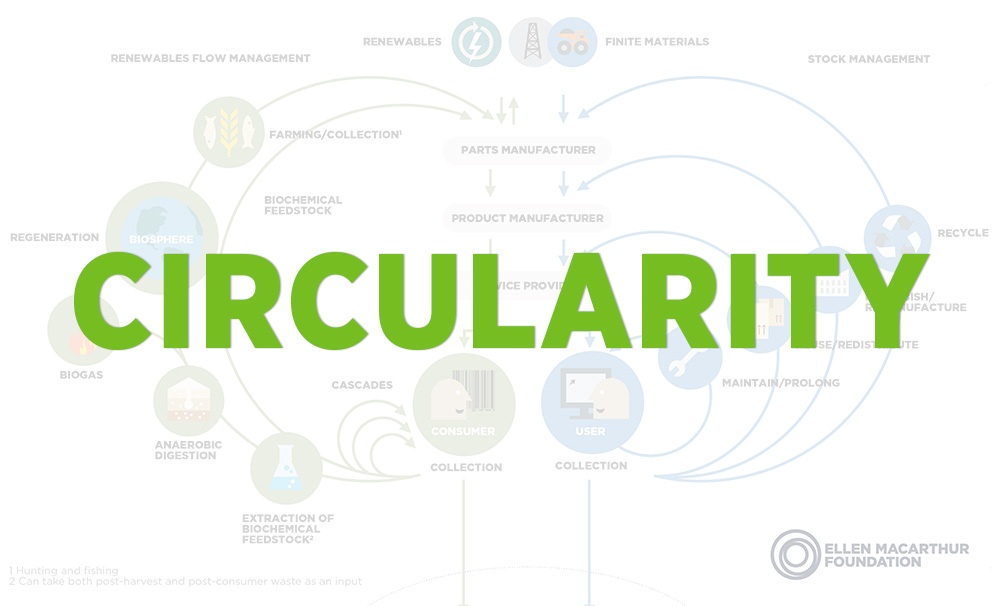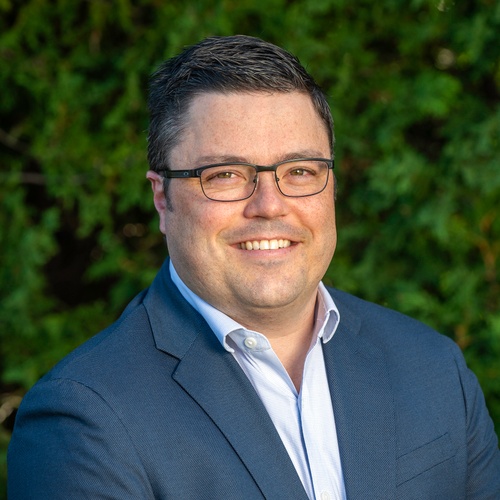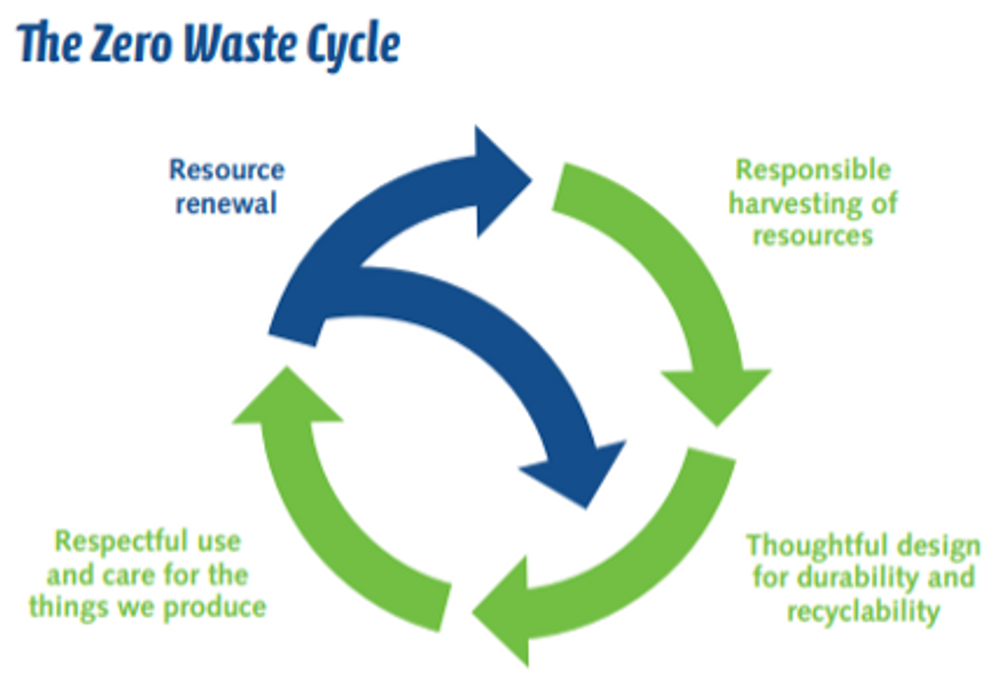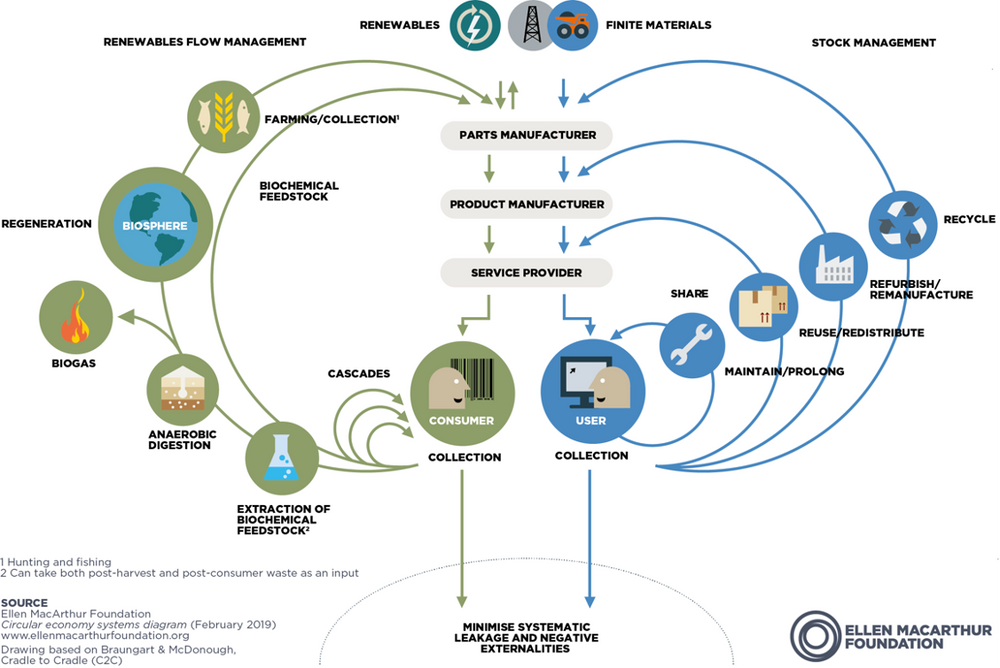Circularity 2023: A recycler's perspective

Professionals interested in building the circular economy are convening in Seattle for Circularity 2023. The speaker list is packed with forward-looking brands, knowledgeable consultants, and visionary non-profit organizations.
As recyclers, we are thrilled to see how far this conversation has come. Casella has been investing in recycling infrastructure since the 1970s with millions of dollars helping our customers recover more of their waste, continuously adapting to shifts in product design and buying behaviors.
Our first Sustainability Report was published in 2009 where we introduced the circular graphic below depicting cooperation and collaboration throughout product supply chains. We understood that while resource renewal would be integral to achieving a circular economy, we could only advance so far on our own. We needed brands, retailers, and consumers to join us.
Recycling is a necessary component to establishing a true circular economy. Its goal is to reuse, repair, and remanufacture products and materials to minimize environmental impact. Recyclers play a key role in managing the continuous flow of these materials.
Today, with more partners stepping up to the circularity challenge, what is the role of recyclers? How can we all work together to achieve the important goals of circularity? First, we need to step back and answer a few basic questions.
What is circularity? By now, we all know that the current economy is mostly linear. Resources are extracted from the environment to make products that are discarded. In a circular economy, resources would be systematically returned to the economy, to significantly reduce or even eliminate extraction of natural resources. The Ellen MacArthur Foundation has contributed a lot of graphics and videos to illustrate this idea.
How circular are we today, and why does it matter? According to the latest edition of the Circularity Gap Report, each year the global economy consumes over 100 billion tons of material, and only 7.2% makes it back into the economy. This means that our economy is heavily reliant on virgin materials extracted from the environment, which in turn means we are unsustainably depleting our water, soil, and air.
How do we become more circular? That same report describes four key strategies for becoming more circular, namely: 1) Use less, 2) Use longer, 3) Use again, and 4) Make clean. Number three is where recycling fits in. And number four has to do with using renewable energy and regenerative materials. As the Circularity Gap Report puts it, “there is much more to the circular economy than just recycling.”
Casella’s work to advance the four key strategies of circularity
A materials management evolution at Casella is contributing to the circularity revolution. We have built a business around helping customers meet their sustainability goals by finding ways to put waste to its highest and best use. We are constantly innovating to capture more value from society’s waste streams so we can return high-quality raw materials to the economy.
Recycling has been at the core of Casella’s business since the beginning when we founded Vermont’s first recycling facility. So recycling is the foundation that we stand on. Our long-standing experience enables us to support our customers with all four of the circularity strategies.
- Use Less: One of the most basic ways we can contribute to waste reduction is through the data we provide. For example, we provide granular waste and recycling reports that allow retailers to compare among locations so they can push innovations and reductions. Similarly, our waste audits and service changes motivate customers to drop wasteful practices. The simple fact of seeing 38 full compost carts in the back alley is enough to drive most grocery store managers to quickly tighten up their purchasing.
- Use Longer: Those of us who spend our days at solid waste facilities can’t walk through a superstore or shop online without pondering how quickly most items will be used up, worn out, broken, and rolling across our truck scales. We encourage customers to buy good quality, durable goods, and we’ve seen success initiating reuse programs that extend the useful life of products. Our partnerships with organizations like Goodwill of Northern New England provide opportunities to work with them on things like college move-outs, warehouses full of books, etc.
- Use Again: For forty years, we have been investing in the infrastructure and delivering curbside services that enable hundreds of thousands of customers to recycle so materials can be used again. Efficiently and effectively capturing recyclables from homes and businesses remains an essential element of circularity, and it’s a service that we are proud to be continuously advancing. Next month, we will unveil our newly retrofitted Boston Materials Recycling Facility (MRF), the 4th largest materials recovery facility in the country, which will bring modern technology and capacity to capture more high-quality recycled commodities from the region. As Casella’s largest municipal partnership, we are helping the city to achieve its zero waste goals and will provide broad-based education about how recycling gets done.
- Make Clean: We work with our customers and vendors to return a million tons per year of quality recycled commodities back into the economy, providing manufacturers with a clean source of raw materials. This is essential to the vision of a circular economy, which will only succeed if manufacturers are committed to using recycled feedstocks and extracting fewer new resources from nature. We’re also innovating to make our own operations increasingly clean and renewable. Our Springfield MA recycling facility has 1.1 MW of rooftop solar panels, our Buffalo recycling facility is wind-powered, and our Rutland VT hauling division is piloting two electric trucks.
While it is true that “there is much more to the circular economy than just recycling,” we know it is also true that there can be no circular economy without recycling. Casella plays a key role in the emerging circular economy and is well-positioned to recover materials and return them to sustainable product supply chains. In addition to servicing our customers and investing in infrastructure, we can continue to advocate for smart design changes that will reduce waste and improve durability, to push for clearer labels that will help our customers recycle with confidence, and to evolve in ways that ensure our industry will continue to support and accelerate circularity in the years ahead.
About Casella Waste Systems, Inc.
Casella Waste Systems, Inc., headquartered in Rutland, Vermont, is the Northeast’s largest recycler and most experienced fully integrated resource management company. Founded in 1975 as a single truck collection service, Casella has grown its operations to provide solid waste collection and disposal, transfer, recycling, and organics services to more than 900,000 residential, commercial, municipal, institutional, and industrial customers throughout the Northeast, and professional resource management services to over 10,000 customer locations in more than 40 states.
Contacts


